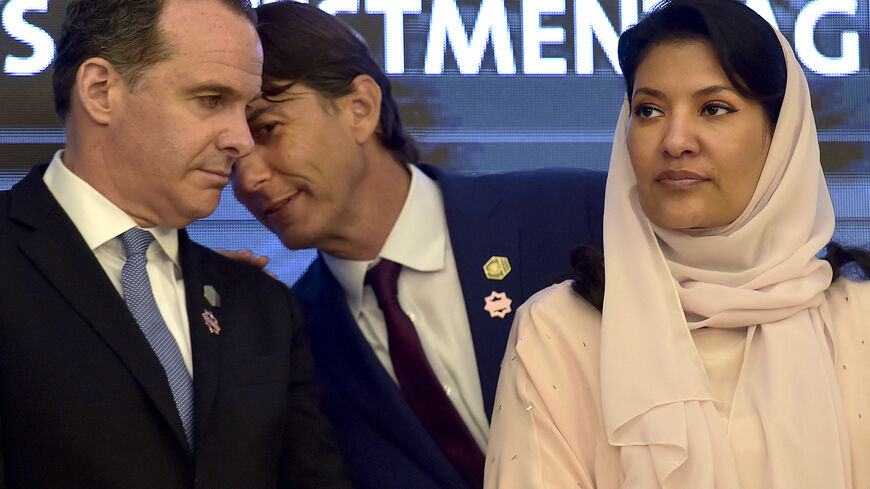In a bid to advance normalization with Saudi Arabia, Israel’s Prime Minister Benjamin Netanyahu was scheduled to meet on Monday in Jerusalem with US National Security Council coordinator for the Middle East and North Africa Brett McGurk and US special envoy on energy Amos Hochstein, who had both accompanied US national security adviser Jake Sullivan on his visit to Riyadh this weekend.
Israeli Foreign Minister Eli Cohen met on Monday in Jerusalem with Hochstein to discuss the advancement of diplomatic moves in the region. A statement issued by Israel’s Foreign Ministry Monday evening said that after meeting with Hochstein, Cohen spoke on the phone with Secretary of State Anthony Blinken and updated him on Israel’s diplomatic activities in recent weeks to advance regional stability. The statement said that Cohen and Blinken discussed advancing more normalization moves in the framework of expanding and deepening the Abraham Accords (normalizing relations between Israel and the Arab world) and in the framework of the Negev forum.
Sullivan met on Sunday with Saudi Prime Minister and Crown Prince Mohammed bin Salman, Emirati national security adviser Tahnoon bin Zayed Al Nahyan and Indian national security adviser Ajit Doval. A readout issued by the White House said the purpose of the quadruplet meeting was to "advance their shared vision of a more secure and prosperous Middle East region interconnected with India and the world."
According to an Al-Monitor report published before the meeting, participants were slated to discuss a possible major joint infrastructure project that would connect Gulf and Arab countries via a network of railways. This network of railways would connect also to India via shipping lanes from ports in the region. Israel wants to be part of this interconnection project.
The idea for the quadruplet initiative came up at a meeting of the so-called I2U2 forum, a partnership focused on economic development and food security amid global climate change. The I2U2 forum includes Israel, India, the United States and the United Arab Emirates. First initiated in July 2021 by then-Foreign Minister Yair Lapid, the forum has since brought together leaders from the four countries via Zoom in 2022 and via several meetings of other senior officials. A meeting in Washington last April of senior officials from Israel, India, the United States and the UAE, reported on by Al-Monitor, saw the signing of a memorandum of understanding to create a joint business coalition to promote the I2U2 initiative.
According to Haaretz, Netanyahu's meeting with the two American envoys is part of a recent push by the Biden administration for normalization between Israel and Saudi Arabia. Washington believes that despite its rapprochement with Tehran, Riyadh could also advance on normalization, the same as the Emirates — which maintains diplomatic ties with both Israel and Saudi Arabia. Strengthening India is also an important interest of the Biden administration, faced with the expanding regional influence of China.
Addressing the Washington Institute for Near East Policy last Thursday, Sullivan said that brokering normalization between Israel and Saudi Arabia is also an important American interest and that such moves underline the commitment of the Biden administration to continue focusing on expanding the Abraham Accords.
“We have the interest and bandwidth to promote normalization between Israel and Saudi Arabia, and in fact, it’s this administration that has produced the first tangible step of these two countries coming close together with the opening of the airspace over Saudi Arabia for civilian flights from Israel,” said Sullivan, adding that “ultimately, getting to full normalization is a declared national security interest of the United States; we have been clear about that.”
Sullivan further said that the Biden administration is committed to “supporting Israel’s ultimate, final, complete integration into the Middle East region and the world,” and that “this will be an area of continuing emphasis and focus for us over the coming period as we look to add more countries and to bring Israel even more deeply into the web of relationships in the Middle East and beyond.”








